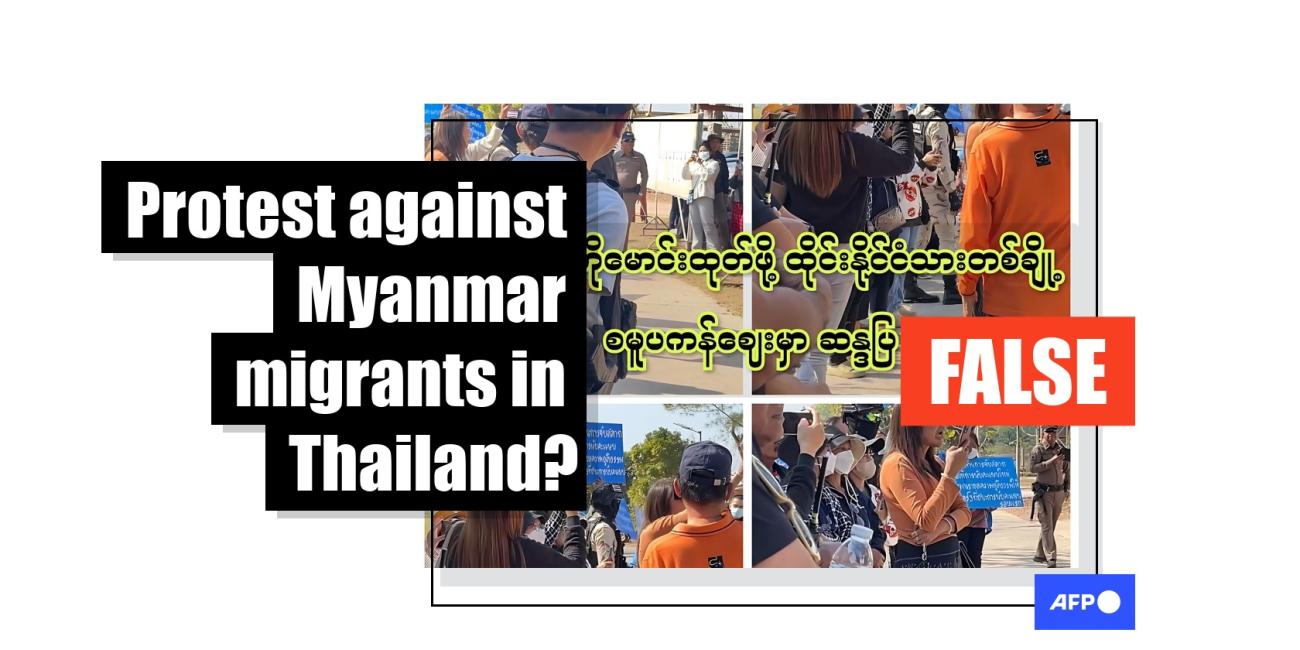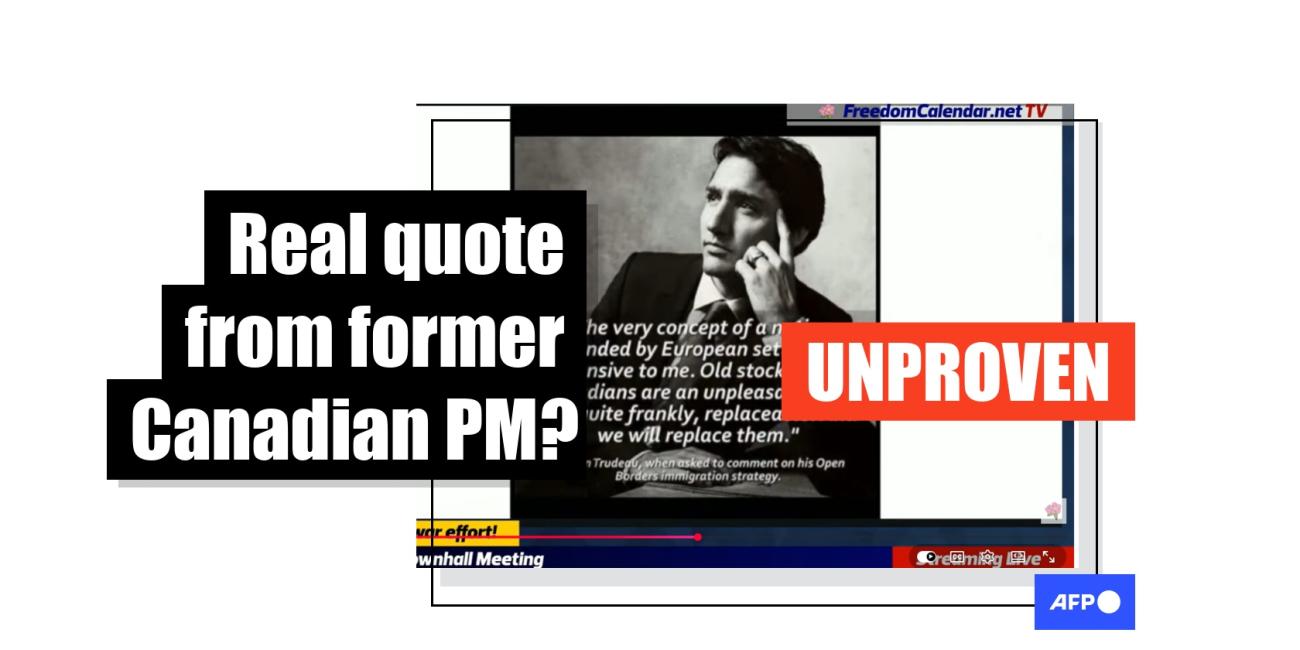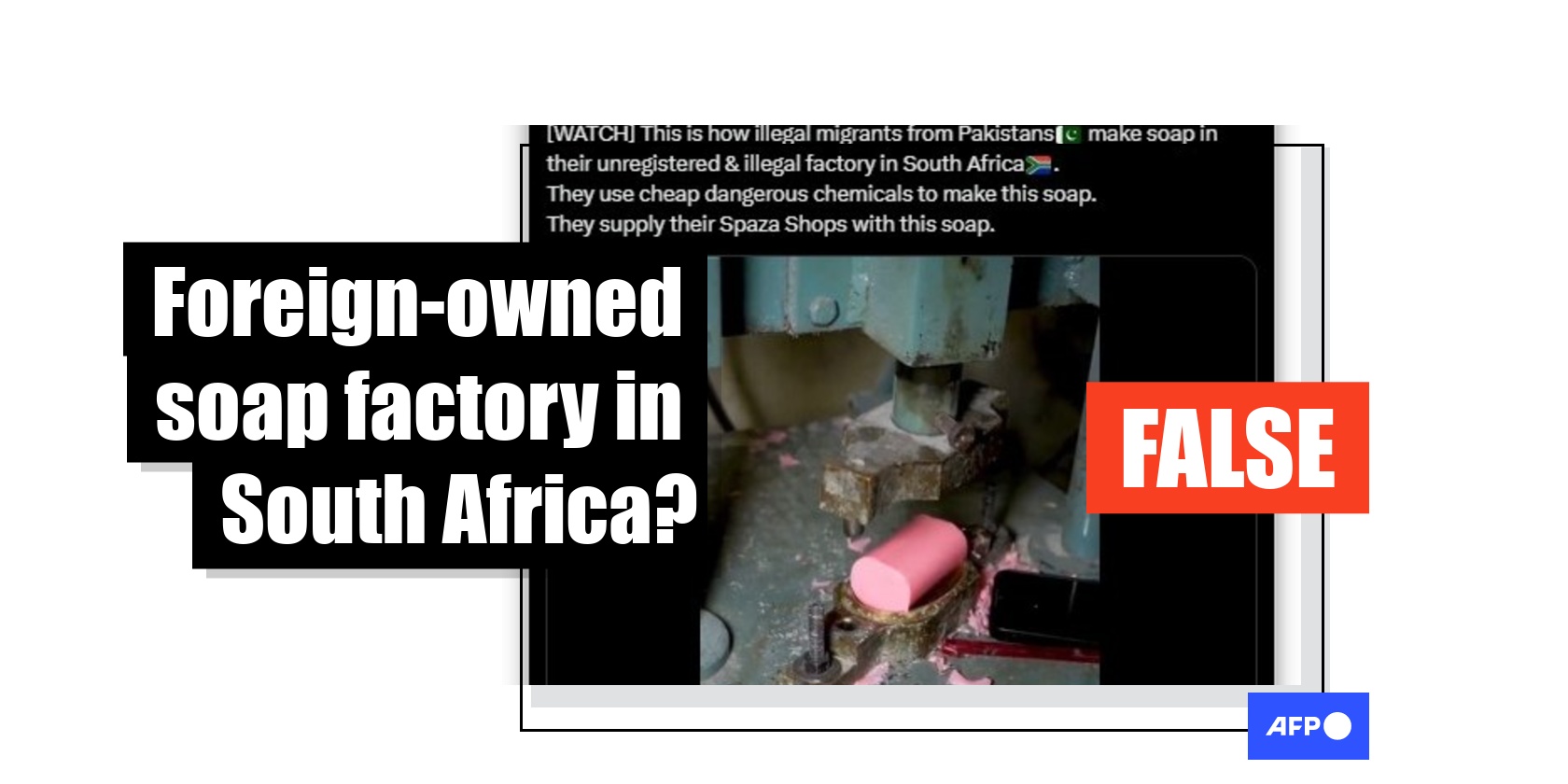
Posts falsely claim to show illegal soap factory in South Africa
- Published on August 29, 2025 at 13:36
- 2 min read
- By Tendai DUBE, Masroor GILANI, AFP South Africa, AFP Pakistan
“This is how illegal migrants from Pakistans make soap in their unregistered & illegal factory in South Africa (sic),” reads an X post published on August 23, 2025.
Liked more than 1,000 times, the post also claims “cheap, dangerous chemicals” are used to manufacture the soap, which is then supplied to informal convenience stores known colloquially as spaza shops.
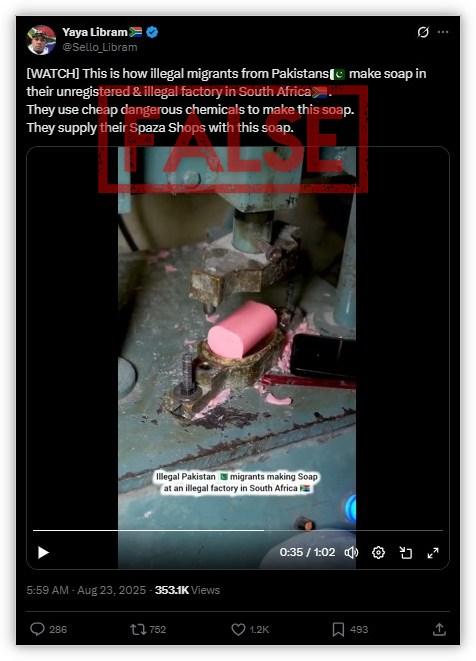
The post, shared by an account containing xenophobic content (here and here), features a 60-second video showing clips of soap being manufactured with machines.
A similar claim also circulated on Facebook.
However, the footage shows a factory in Pakistan and is unrelated to foreign nationals in South Africa.
Maham in Multan
Reverse image searches revealed similar videos of soap making on various platforms, including this YouTube account dedicated to the “Pakistan soap industry” (archived here).
The account includes a link to a Facebook profile called “Hassan Saban Wala”, which also shows the production of soap, specifically the pink variety seen in the video circulating online (archived here).
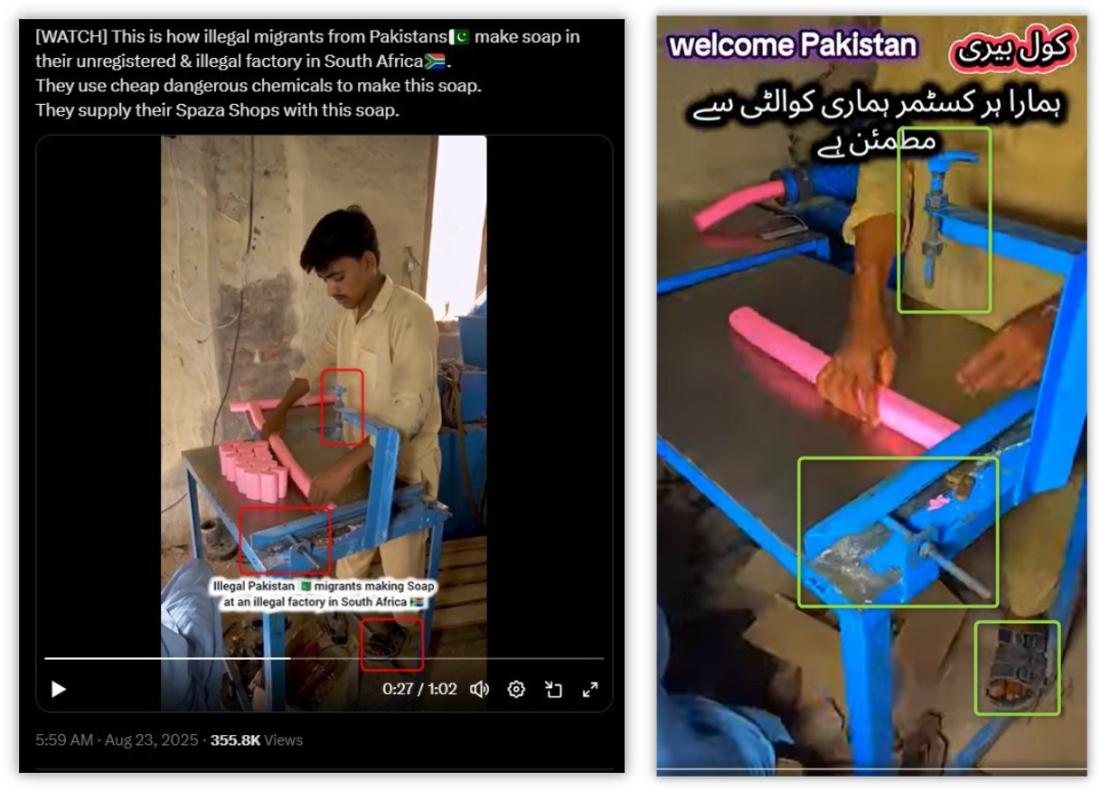
A Google search of the soap's name, visible in the video as “Maham soap”, found a TikTok video promoting the same content, by an account also called “@hassan.saban.wala4” (archived here).
Saban is the Urdu and Punjabi word for soap, and Saban Wala means one who deals in soaps.
Contacted by AFP Fact Check in Pakistan using the number on the TikTok account, Hassan Ali confirmed that he has been operating the soap factory in the central Pakistani city of Multan for about 10 years (archived here).
“We make all kinds of soaps and also deal in soap-making machinery,” Ali told AFP Fact Check, adding he was unaware of social media posts claiming the factory was in South Africa.
The location for Hassan Saban Wala is also available on Google Maps: the photos linked to the map match the same blue machinery seen in the soap videos, while the phone number is the same as the one listed on the social media accounts for Hassan Saban Wala (archived here).
Foreign-owned shops
Spaza shops have been a long-standing point of contention between South Africans and foreigners, who are accused of taking job opportunities that some say should be reserved for locals (archived here and here).
The country attracts many migrants despite having one of the world's highest unemployment rates. This trend, combined with an unpredictable economic outlook, often results in periodic outbreaks of anti-immigrant violence (archived here).
Tensions worsened after several children died at the end of 2024 after consuming goods from a spaza shop (archived here).
Spaza shops across the country continually face criticism over food safety and non-compliance. Recently, several businesses closed in Cape Town due to increasing extortion costs from gangs (archived here, here and here).
Copyright © AFP 2017-2026. Any commercial use of this content requires a subscription. Click here to find out more.
Is there content that you would like AFP to fact-check? Get in touch.
Contact us

